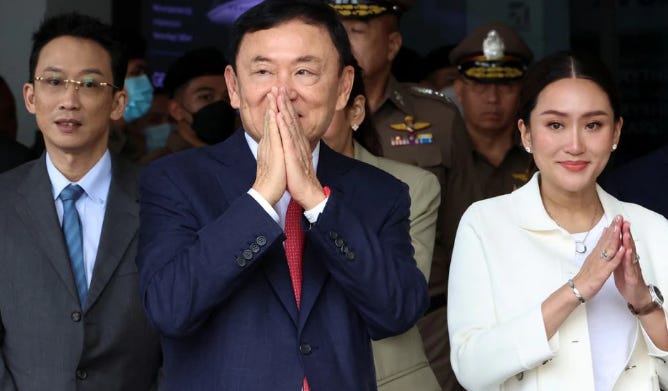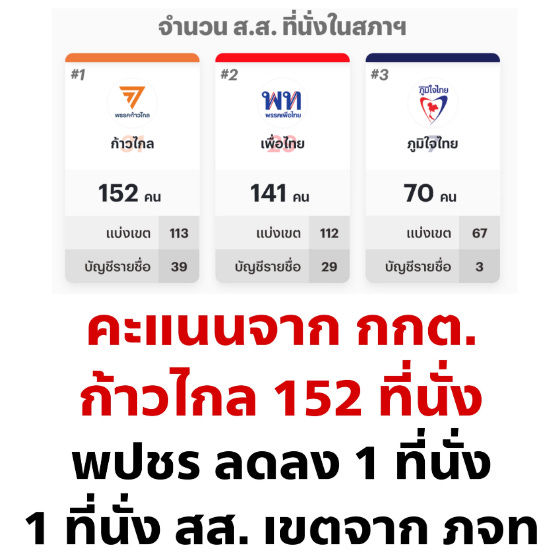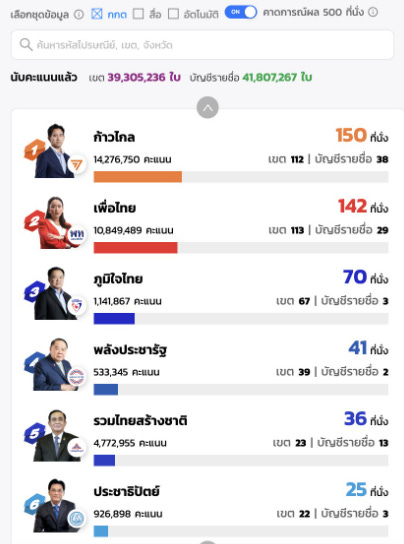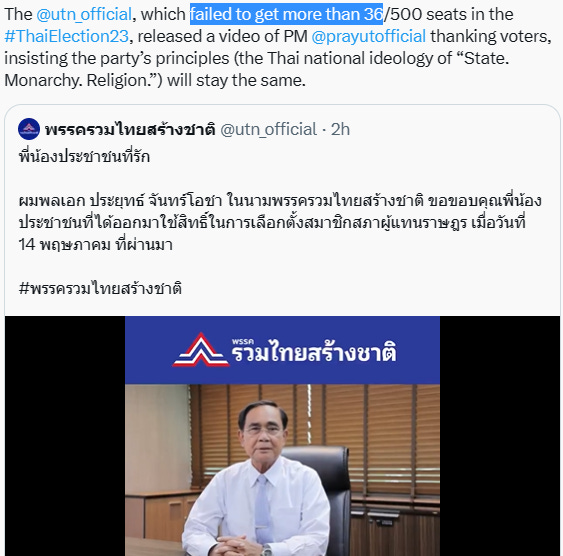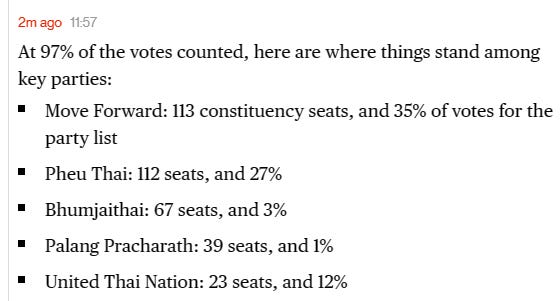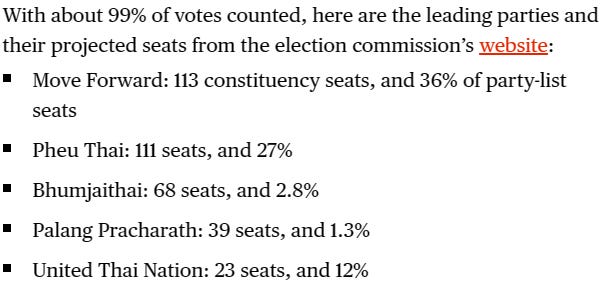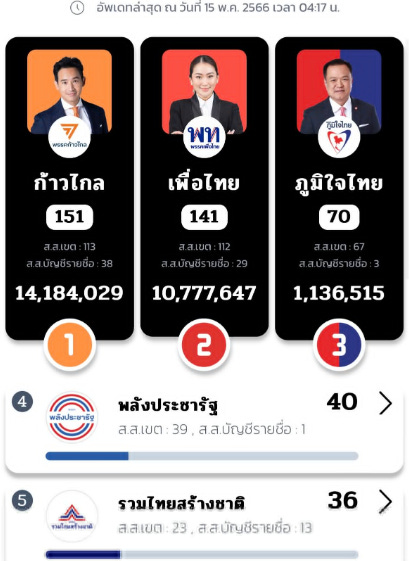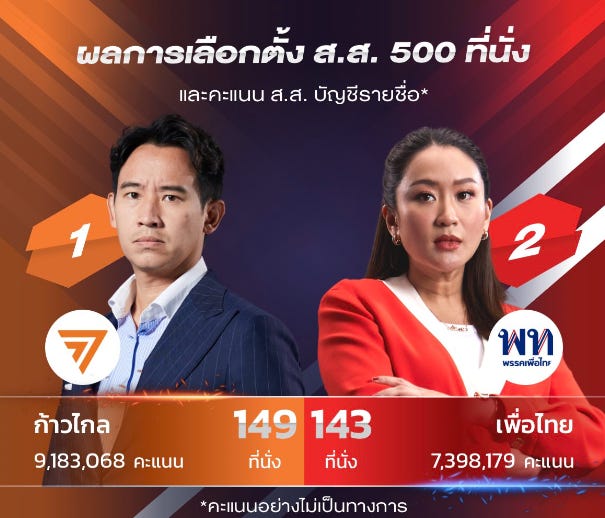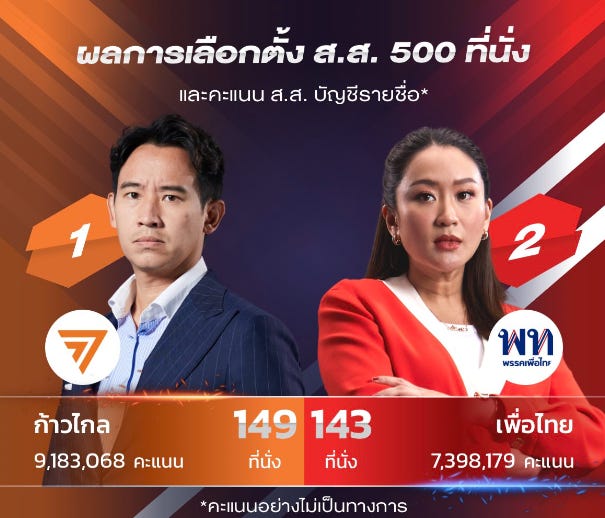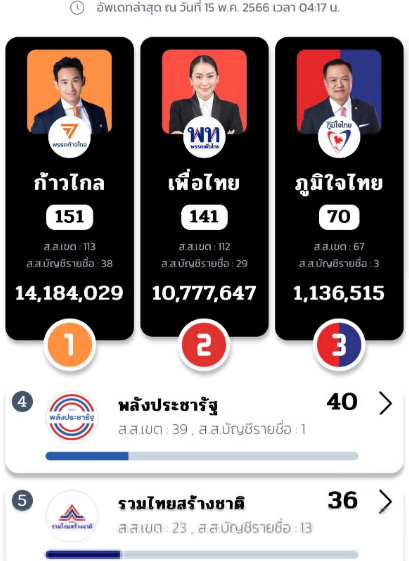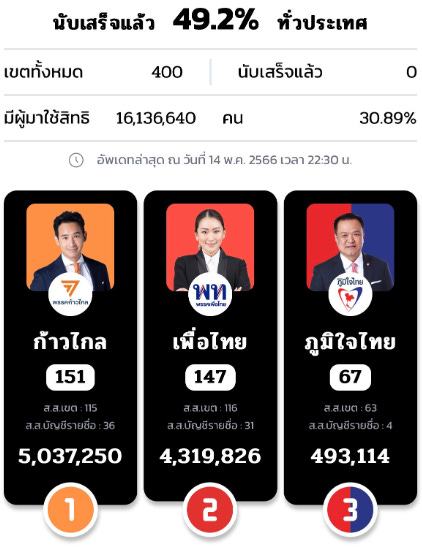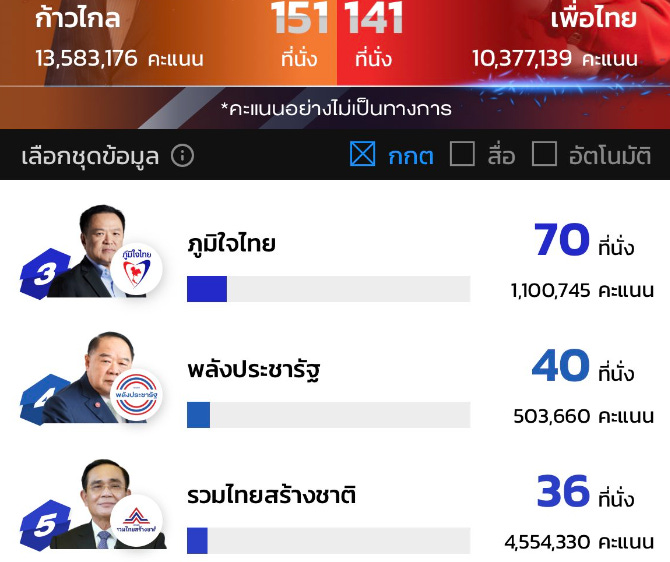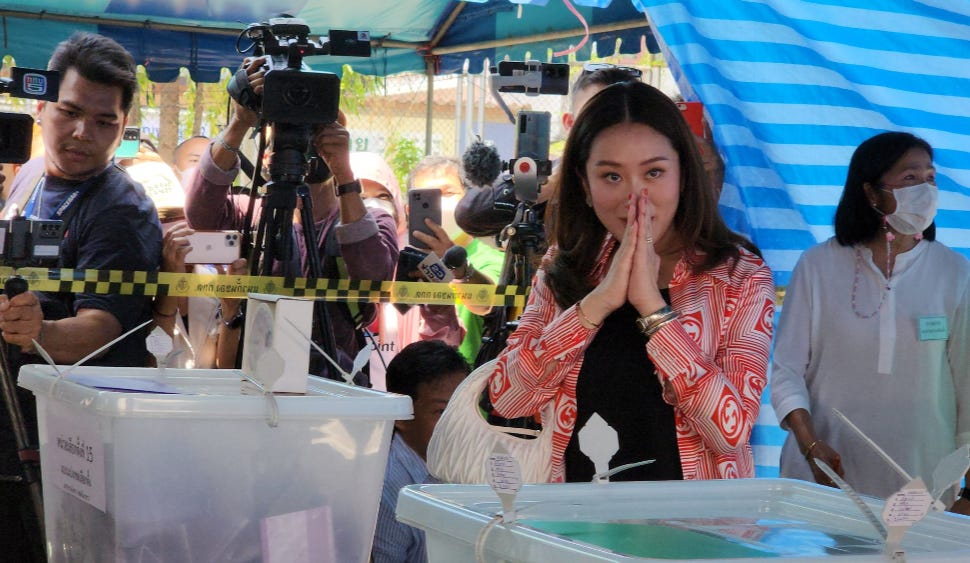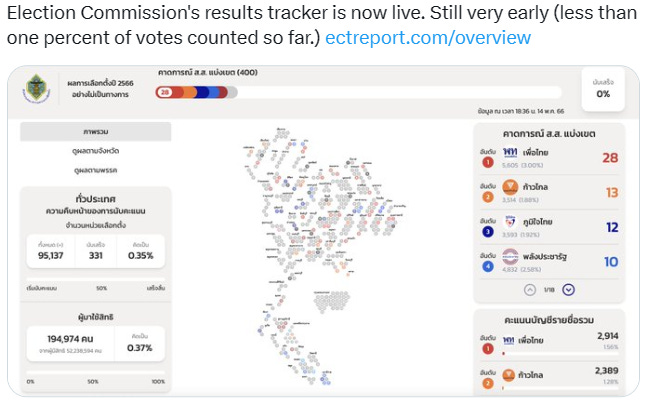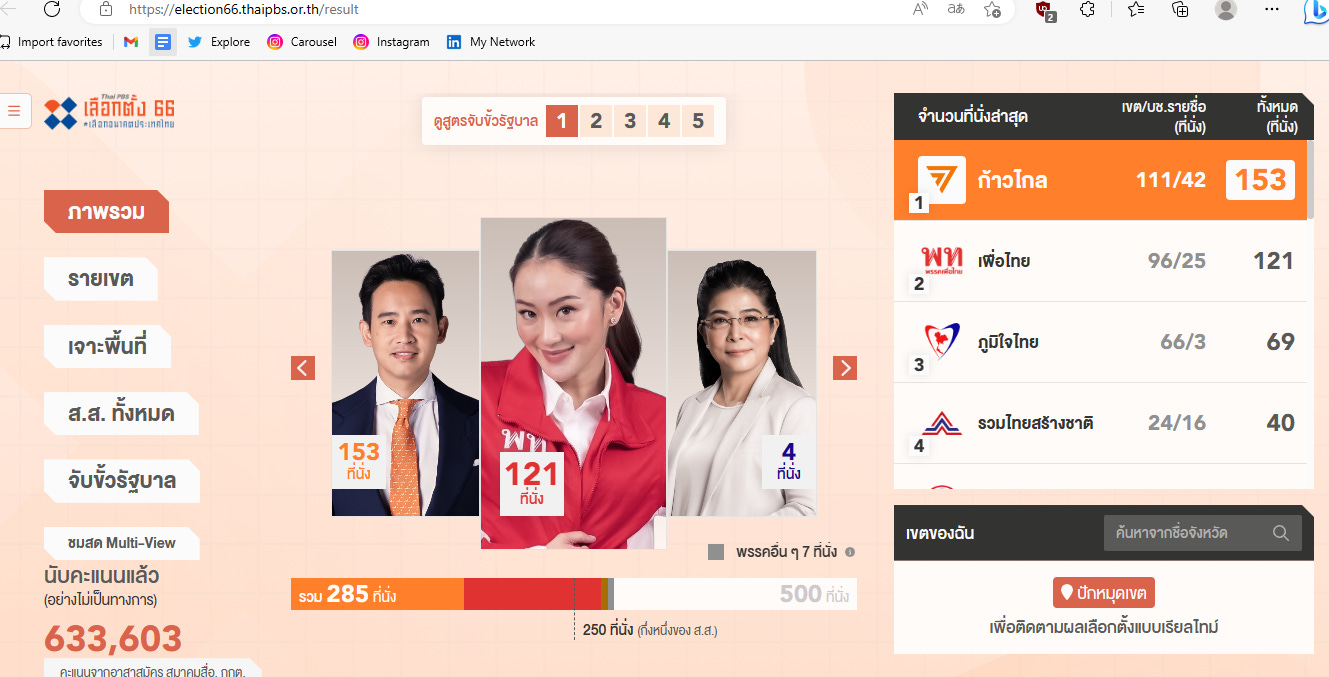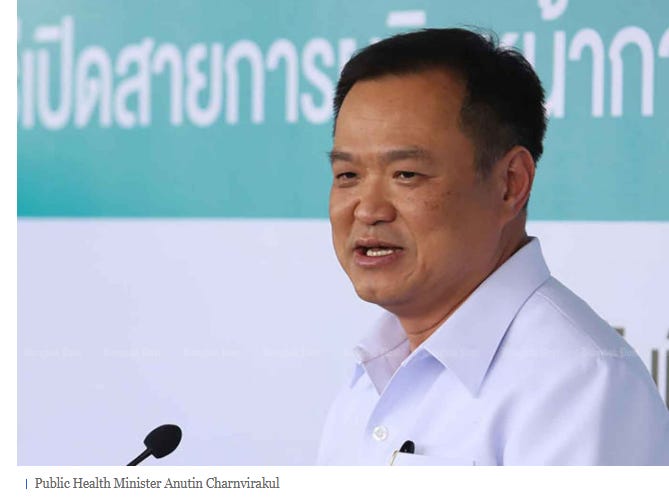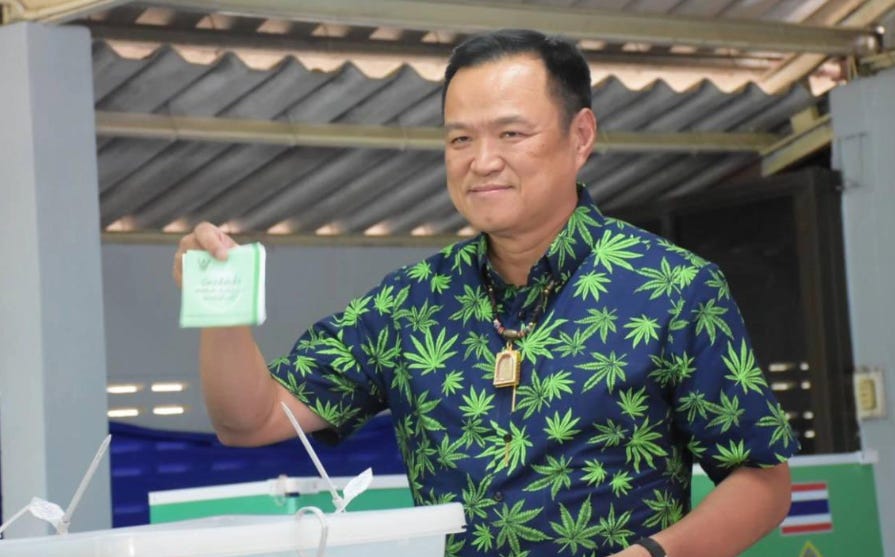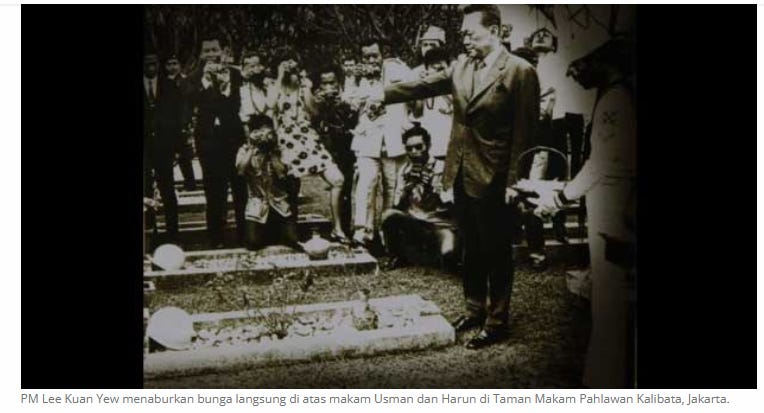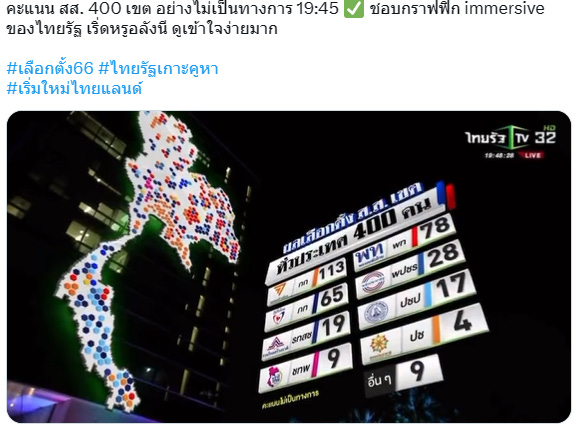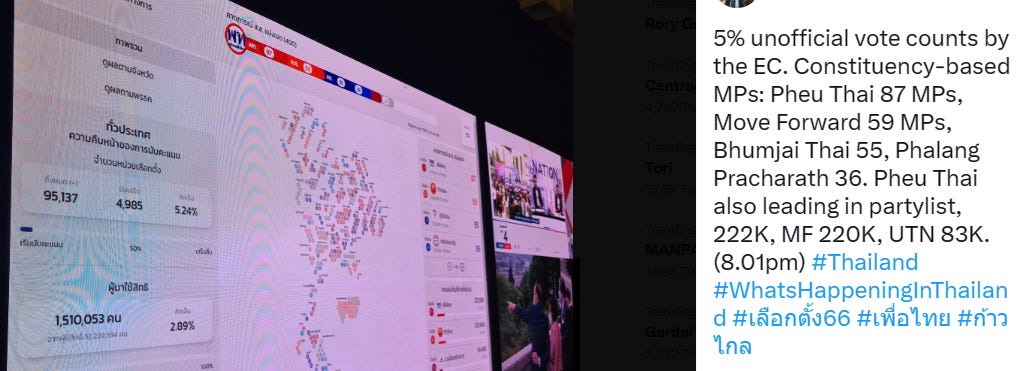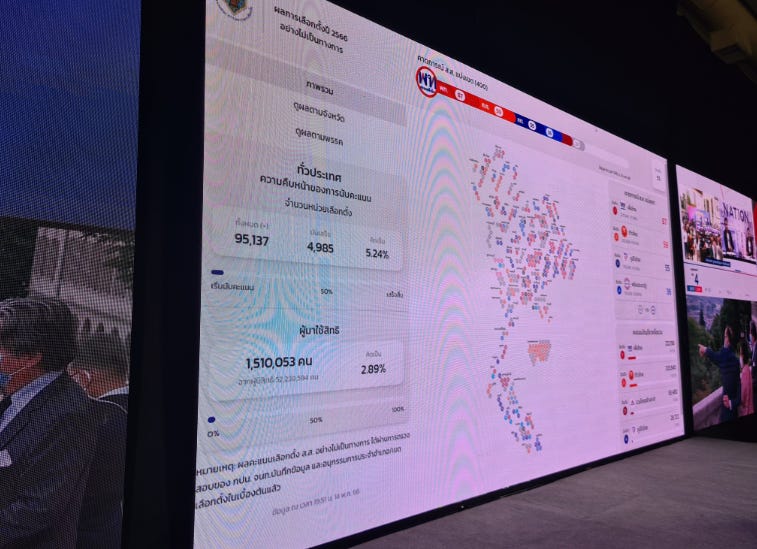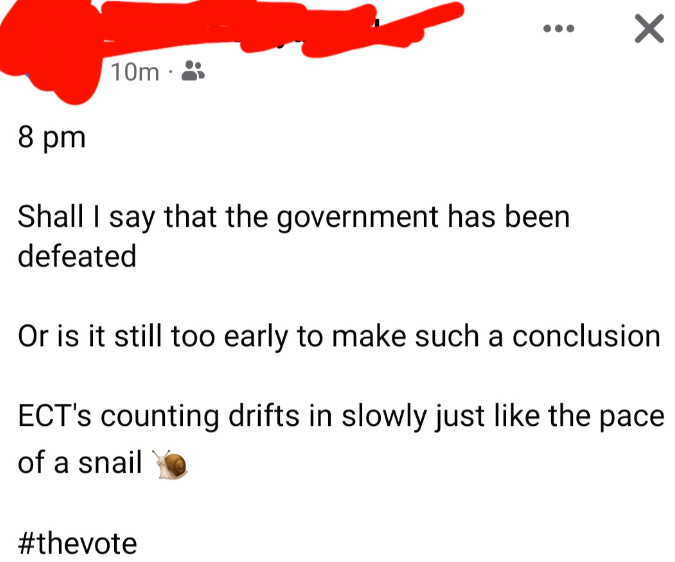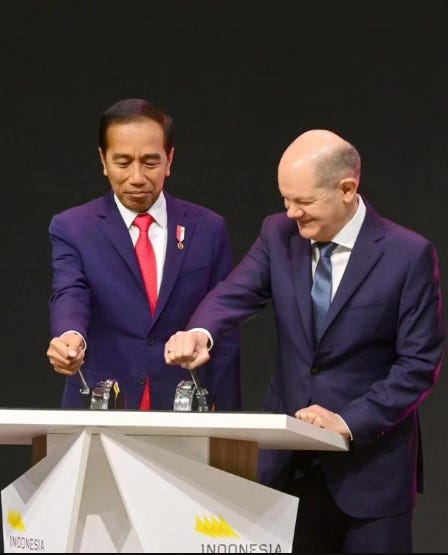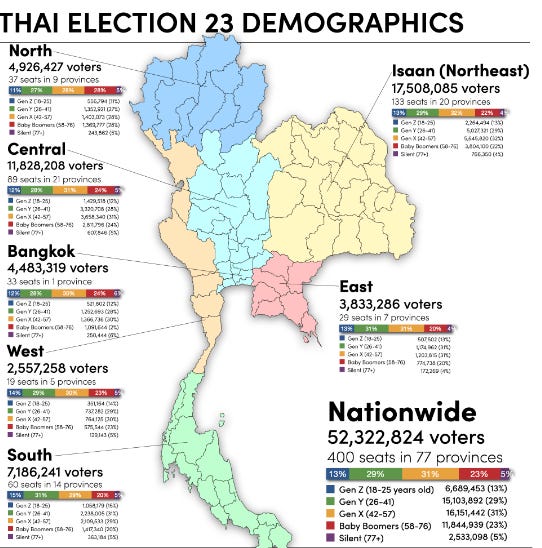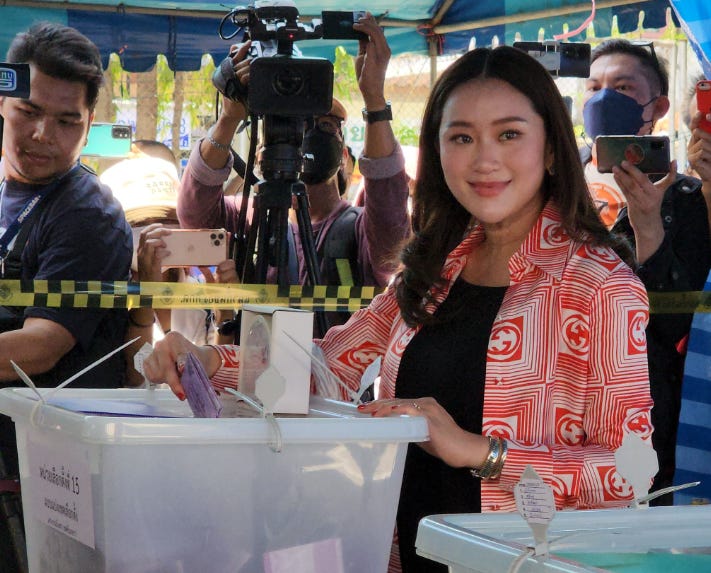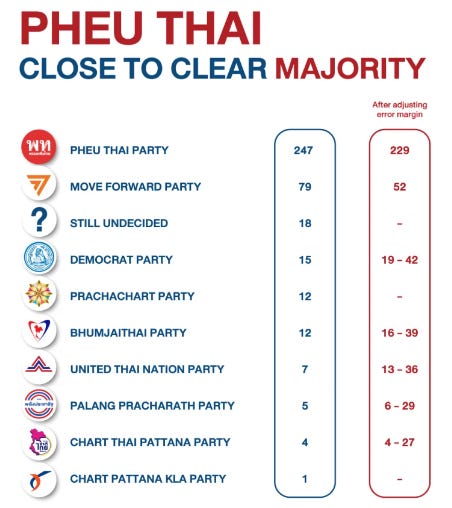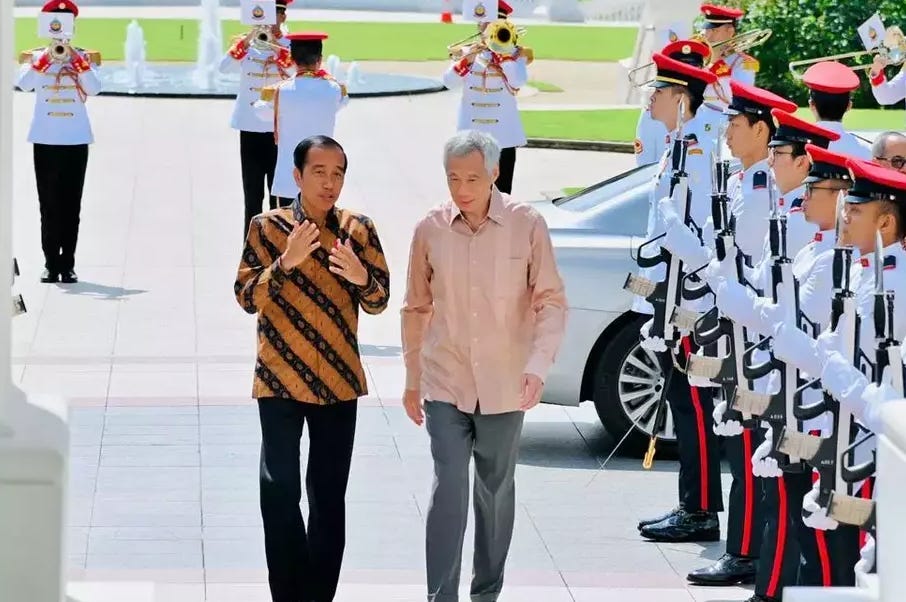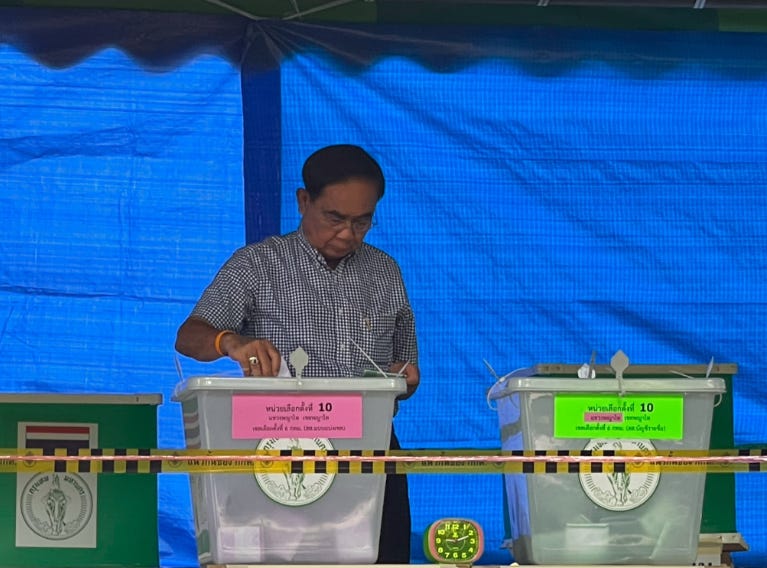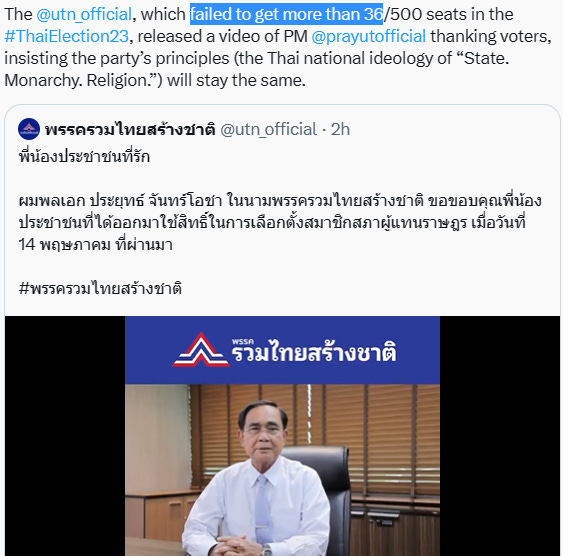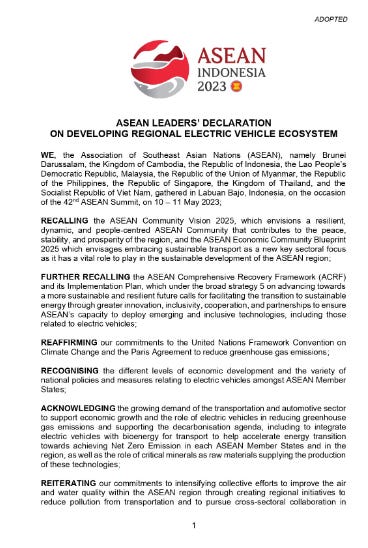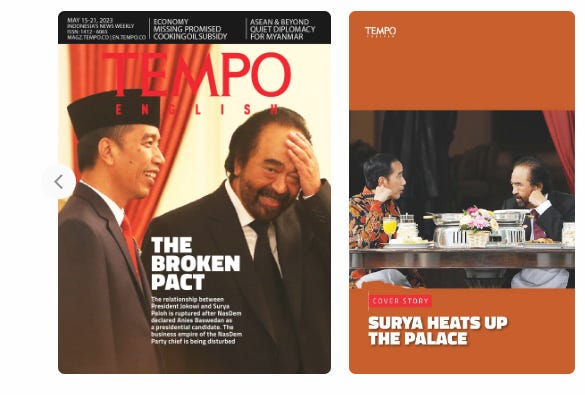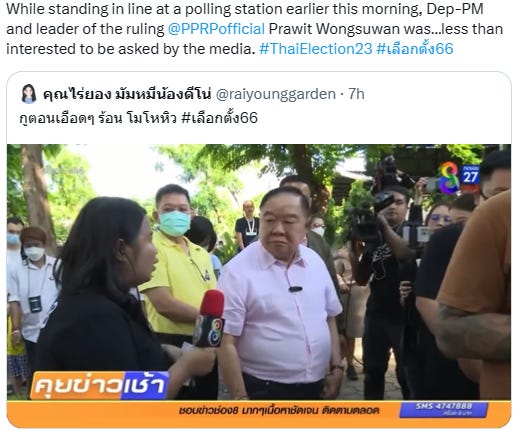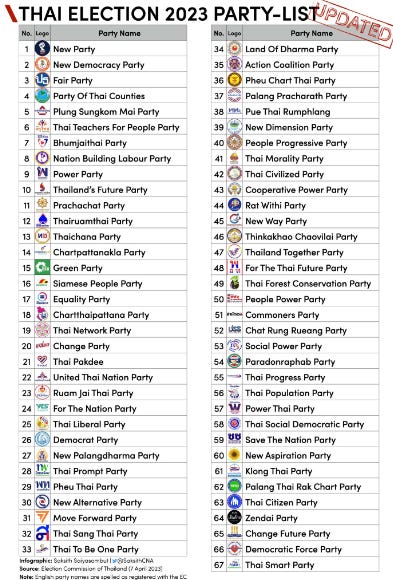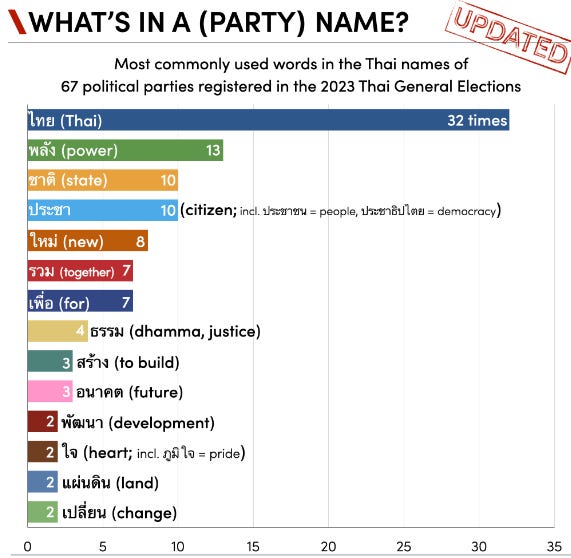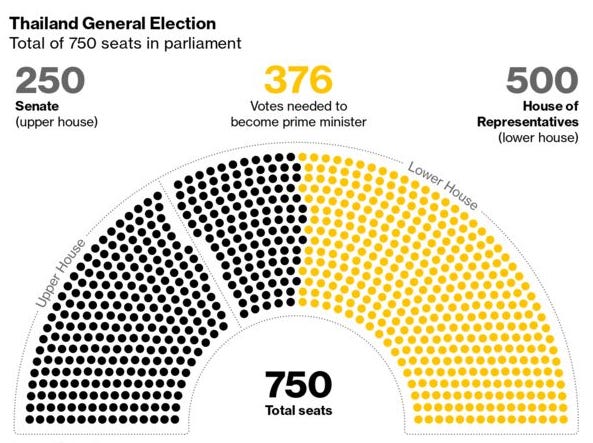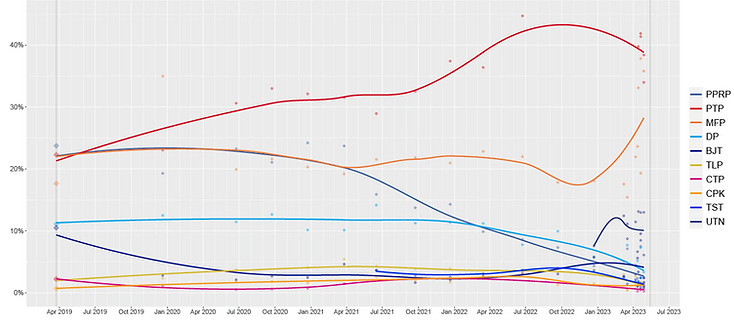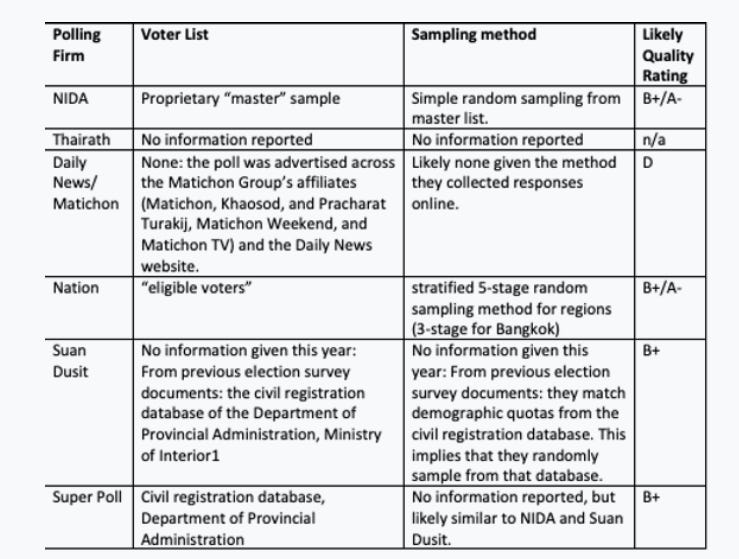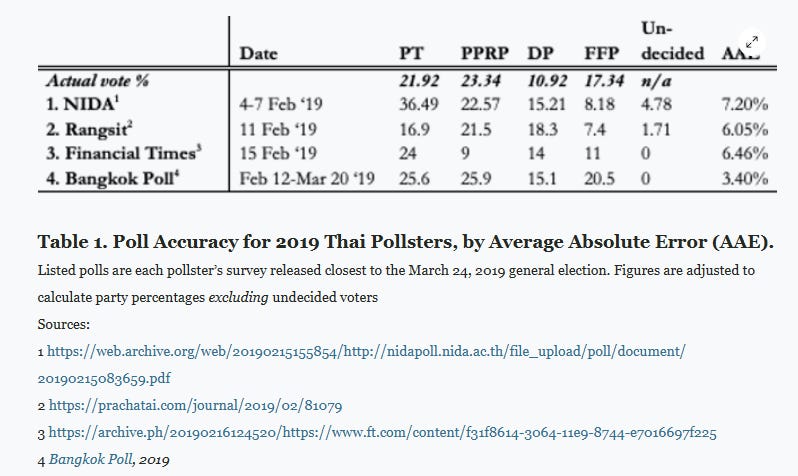Thai Election (เลือกตั้ง66): In Detail Analytical, Maybe Shinawatra’s Clan For the 3rd Time Reign Prime Minister Again, Winning Investor's Ambitious
The biggest rival for Indonesia in the automaker industry, the biggest market of cars & motorcycles in ASEAN (Jokowi’s aim, Indonesia to be global producer automaker include Electric Vehicle), Thailand, already held an election today alongside Turkiye / Turkey. 95,137 polling stations across nation. Every station will count & show 2 different ballot papers. 1 will be for choice of candidates, another for party.
With a lackluster Thai economy and a stock market that’s slumped 6.4% this year, foreign investors will have plenty to watch in this election as candidates promise billions worth of stimulus and incentives.
Pita Limjaroenrath (11.54 am Bangkok, May 15th, 2023): to set 5-parties coalition with total 309 seats in Lower House (500).
How to read this infographic:
Move Forward, #PitaLimjaroenrat party : 152 Seats 🪑Lower House / LH, 113 Constituency Seats / CS, & 39% party-list seats (14,276,750 votes)
#PheuThai #Paetongtarn’s party: 141 Seats 🪑 LH, 112 C 🪑, & 29% P-L 🪑 (10,849,489)
Bhumjathai party: 70 Seats 🪑 LH, 67 CS 🪑, & 3% P-L 🪑 (10,849,489)
from 97% to:
99%
4.17 am Bangkok, May 15th, 2023.
1.53 am Bangkok, May 15th, 2023.
Thai Election Agency has completed counting of ballots from only 33 polling stations or around 0.37% votes (6.27pm Bangkok / 6.27pm Jakarta) out of the 95,137 nationwide, and then 97% counted (1.53 am — May 15th, 2023), nearly 9 hours. The agency will release updated results every 30 minutes starting from 6:30 p.m. local time (that’s just in a few minutes) with about 97% of the count expected to be completed.
May 15th, 2023, 1.57 am Bangkok time. 97% Counted.
and then:
4.17 am. 99% counted
#PitaLimjaroenrat 14,184,029 votes
#Paetongtarn #Shinawatra 10,777,647 votes
Pita Limjaroenrat, Youngest ever leader in ASEAN. 42 years old (younger than Soekarno --- 44 years old in 1945 when Indonesia gain Independence from Japan/Nippon in August 17th 1945 and Soekarno to be 1st ever President of Indonesia alongside VP Muhammad Hatta-43 years old.). Pita reiterated his party's (Move Forward) push to reform royal defamation laws and also said (because intention Pita to create a coalition with Paetongtarn Shinawatra) former PM Thaksin Shinawatra (Paetongtarn’d father) has a right to return to Thailand from exile and face a fair trial and legal system. "I am seeking permission again. I have decided to come home to see my grandchildren (Thasin — without “K”) within July, before my birthday (Thaksin was born July 26th, 1949 in San Kamphaeng, Chiang Mai, Thailand)," Thaksin’s statement via Twitter, May 9th, 2023.
Pita's Party Move Forward win in Bangkok (biggest coefficient), #PheuThai win in another region low coefficient.
Exit Poll showed #PheuThai Pheu Thai Party ( #Paetongtarn #Shinawatra [36 years old]) garnering 32.6% of the constituency vote 32.6%. Move Forward (Pita Limjaroenrat [42 years old]) 29.4%, together giving slim majority if result materializes.
According to Nation TV, a pre-election survey by King Prajadhipok’s Institute shows Pheu Thai and Move Forward in the lead, with Pheu Thai winning the most constituency votes at 27.95% but Move Forward winning the most party-list votes at 29.25%. According to conservative-leaning Super Poll during the pre-election period shows Pheu Thai in the lead, winning 133 seats (111 constituency seats and 22 party list seats). Bhumjaithai Party was in second place with 107 possible seats while Move Forward is in third with 70.
Tycoon-turned-politician and also Public Health Minister, Anutin Charnvirakul (reminds a lot people about Thaksin Shinawatra), is the leader and only prime minister candidate of the Bhumjaithai Party. He’s seen in some circles as the consensus candidate in the event there’s no clear winner and nobody else emerges from subsequent negotiations between the parties.
Anutin reminding everyone of his signature policy. His outfit is befitting of the head of the Thai Ministry of Public Health who decriminalized cannabis. Thai Airways, in vulgar, campaigned “It's about 32 degrees in Bangkok today. Please remember Singaporean citizens and permanent residents are prohibited from the consumption of drugs overseas, as well as at home."
(Promoting to more engage in Substack) Seamless to listen to your favorite podcasts on Substack. You can buy a better headset to listen to a podcast here (GST DE352306207). Listeners on Apple Podcasts, Spotify, Overcast, or Pocket Casts simultaneously. podcasting can transform more of a conversation. Invite listeners to weigh in on episodes directly with you and with each other through discussion threads. At Substack, the process is to build with writers. Podcasts are an amazing feature of the Substack. I wish it had a feature to read the words we have written down without us having to do the speaking.
Very hot to typing in outdoor alongside toddler. Hopefully not too much typo(s). Thai citizens brave the scorching heat to cast their ballots from 8am-5pm local time. Jakarta, Bangkok currently 40-41 Celsius.
While Bhumjaithai may find itself in the role of kingmaker yet again, pushback against Anutin is growing as lawmakers from rival parties blocked a bill to regulate the cannabis industry and growing societal concerns about drugs threatens to set back the landmark policy.
Another richest / tycoon: Charoen Sirivadhanabhakdi, the richest Thai with a net worth of $14.8 billion, voted at a Bangkok polling station, the National News Bureau of Thailand reported. Charoen is the chairman of a number of companies under the TCC Group that includes Singapore-listed liquor maker Thai Beverage Pcl, Asset World Corp. and Frasers Property Ltd.
Thai election rules ban the sale or distribution of all types of alcohol starting 6 p.m. on the eve of voting on Saturday until an hour after voting closes at 5 p.m. Sunday. The prohibition also applied to advance voting held May 7. Preliminary and unofficial results will be announced after 6:30 p.m. Anyone caught violating is liable to six months in prison or a fine of up to 10,000 baht.
Gambling on election results in also not allowed and is punishable by jail terms of one to five years or a fine of as much as 100,000 baht. Offenders may also lose the right to vote for 10 years. Other election rules:
Ban on publication of opinion polls for a week until voting closes at 5 p.m.
Ban on transporting voters to polling booths
Voters are not allowed to take pictures of ballots already cast or to display them to others
Thai PM candidate Paetongtarn Shinawatra (36 years old - Pheu Thai Party), youngest daughter of Thaksin, has cast her ballot after the birth of child. She recently gave birth to a baby boy nicknamed "Thasin" – like her father: Thaksin. Ms Paetongtarn Shinawatra (36 years old), in 2nd on latest survey (May 3rd, 2023), with 19.59 % backing, behind Forward Party leader Pita Limjaroenrat with 49.17 %.
Around 9am Bangkok (same 9am Jakarta) Prime Minister Prayut Chan-o-cha has cast his ballot. He told reporters not a lot after that, just urging people to use their right to vote. He did not disclose whether he will be at UTN Political Party HQ tonight to watch the results. He’s not attended ASEAN Summit 3 days ago in Labuan Bajo Indonesia because preparing election (Jokowi to be Chairmanship ASEAN 2023).
No sign of Paetongtarn’s father, Thaksin Shinawatra, landed in Bangkok to meet her younger daughter. Thaksin did not return to hear the final supreme court sentence and applied for asylum in the United Kingdom. This was refused, after which he had to move about from one country to another. In October 2008, the Thai Supreme Court found him guilty of a conflict of interest and sentenced him in absentia to two years imprisonment. The People's Power Party was later dissolved by the Supreme Court, but party members regrouped to form the Pheu Thai Party, which Thaksin also supported. In 2009 it was announced that Thaksin had obtained Montenegrin citizenship through that country's economic citizenship program.
She (Paetongtarn) hasn't spoken to her dad today but he has told her to rest while her mum has given her blessings.
Thaksin Shinawatra said (May 9th) he would return home in July after 17 years in self-imposed exile, just days ahead of an election his party is expected to win.
Although Thaksin, arguably Thailand's most influential and divisive former leader, has failed to make good on numerous pledges to return, his remarks on Twitter were the first time in recent years that he has set a timeframe.
"I am seeking permission again. I have decided to come home to see my grandchildren (Thasin — without “K”) within July, before my birthday (Thaksin was born July 26th, 1949 in San Kamphaeng, Chiang Mai, Thailand)," he said.
"I want permission," he added, without saying from whom he was seeking it. "It has been 17 years that I have been separated from my family. I am old."
The 73-year-old former police colonel and telecoms mogul has loomed large over Thai politics since his ousting in a 2006 coup. He left into exile in 2008 to avoid jail for abuse of power, a charge he insists was politically motivated.
Pheu Thai, a party controlled by his family and business allies, has held a big lead in opinion polls ahead of the May 14 vote, as its predecessors did before winning every election since 2001.
The 42-year-old Move Forward leader, Pita Limjaroenrat, has risen to the top of recent surveys among individual candidates for prime minister in an indication of the strength of a reformist movement that surprised the nation in the 2019 election, and again with the outbreak of mass protests the following year.
Ivy League-educated Pita started a career in politics first as a member of parliament of upstart Future Forward Party, which came third in 2019 on the support of many first-time voters during Prayuth’s military rule. The dissolution of Future Forward was seen as the initial spark that ignited protests.
The members of the House of Representatives are elected via a two-ballot system where voters cast a ballot for their constituency candidate and, separately, for a party. A simple majority in the lower house doesn’t guarantee a prime ministerial position for a party as the leader is chosen in a joint sitting of the lower house and the Senate.
Thais have a lot of options to choose from today. 6,679 candidates are competing for the 500 seats in the parliament. And 67 parties are on the second ballot for the party-list.
The current crop of 250 senators will cease to have the power to vote in a prime ministerial election -- an authority given to them by a military-drafted constitution in 2017 -- in May 2024. They will continue to play a role in passing laws.
Thai youths have taken a progressive turn, while in Malaysia, Malay youths have embraced conservative politics. The election today may be confirmed. This is a fascinating and welcome comparison between young voters in Thailand and Malaysia. What both countries have in common is a younger generation motivated by disillusionment over their future prospects under the established political order. The five single-majority governments that have been formed in Thai history have all been punctuated by military coups. Two of these have been against the Shinawatra clan, and are still fresh in Thai voters’ minds. Prayuth is a walking reminder of the coup he led in 2014 against the government of former premier Yingluck Shinawatra, who won the majority in 2011; a victory described as a “landslide.”
Thai polling firms seem intent on breaking records for sample sizes this election year! The pollster with the lowest average sample size, NIDA, has polled between 2,000-2,533 respondents. In contrast, the typical sample size for US polls—in a country almost five times larger—is 1,000. But NIDA’s sample size is modest in comparison to the others. Thairath has the next lowest average—a single survey with 14,140 respondents. Next comes Daily News/Matichon, which published two surveys with 39,687 and 78,583. The fourth highest average sample size goes to the Nation with its two surveys of 39,687 and 114,457 respondents. And finally is Suan Dusit, whose two surveys were 10,614 respondents and one with 162,454. From the perspective of US election polling these sample sizes are simply staggering! But do larger sample sizes equate to better predictions?
Concluding that Bangkok Poll had the lowest average absolute error (AAE)—the standard measure for gauging how accurate a pollster’s predictions were. None of the pollsters I examined had a survey size larger than 10,000. The sample sizes this year are monstrous in comparison!
What are the pollsters predicting and which one should we believe the most? From the most recent survey of each of these pollsters, with survey dates ranging from 6-20 April to 24 April – 3 May, the percentage of votes for Pheu Thai (expected to be the largest vote getter) ranges from 33.65% (Daily News/Matichon) to 41.37% (Suan Dusit). The second largest party (according to polls) is predicted to be Move Forward, ranging from 19.32% (Suan Dusit) to 50.29% (Daily News/Matichon). That is a huge difference amongst survey predictions! The Democrats range from 1.05% (Daily News/Matichon) to 7.30% (Suan Dusit); Bhumjaithai from 0.70% (Daily News/Matichon) to 9.55% (Suan Dusit); and Palang Pracharat, the head of the outgoing government coalition with 1.28% (NIDA) to 7.49% (Suan Dusit).
In general, the Suan Dusit poll has reported the highest numbers for conservative parties, with Palang Prachart (PPRP) and the Democrat Party (DP) with a combined 14.79%. That’s twice as high as the next pollster, Nation Poll, who puts their combined tally at 7.15%. Daily News/Matichon has those same two parties at just 3.51%. Not surprisingly, Suan Dusit also has the two “progressive” parties with the lowest combined vote tally, just 60.69% compared to Daily News/Matichon, which has them at 83.94%.
Clearly, there is huge disagreement amongst these polls! Pollsters often disagree, though not to this extent. When pre-election polls disagree, the discussion comes down to the fine details of each agency’s survey methodology.
Over the last month, a flurry of outlets have released their predictions for the upcoming Thai elections, scheduled for May 14, 2023. All but one puts Pheu Thai as the frontrunner, though the percentage of the predicted vote varies from 35.75% to 49.85%. One poll had the Move Forward Party in front with 50.29% of the vote, 14% higher than the next highest prediction. Which of these various sources should you trust? In the first of this two-part series, I explore the performance of pollsters for the last elections in 2019. Specifically, I explore whether Thai polling agencies fell prey to a similar phenomenon as the 2016 US elections: “Shy Prayut” voters: respondents who did not want to admit that they were going to vote for the leader of the 2014 military coup.
Public opinion surveys are imperfect attempts to measure the voting intention of the nation. Even in countries with completely free and fair elections and stable party systems, polls can differ. Pollsters in Thailand’s 2019 elections were criticized for their inability to predict the outcomes of the last election, but how off were the predictions? Political scientists measure this with something called the average absolute error (AAE). They simply take the difference between the percentage of votes a party actually received in the election and the predicted percentage generated by the poll. They then average this across all of the parties.
Given the high number of parties in Thailand’s last elections, I calculated the AAE across only the top-four parties: Palang Pracharath (PPRP), Pheu Thai (PT), Future Forward (FFP), and the Democrat Party (DP).
What is a good AAE score? In the 2016 US presidential elections, which produced a shock victory for Donald Trump, and which were regarded as the worst in recent memory, the AAE was a little over 3%. The best Thai polling company, Bangkok Poll, came close to that, but was still higher, with other polling agencies producing even higher AAEs. Why did they perform so badly?
Numerous analyses on the 2016 US polls argued that the media’s interpretation of the polls was just as much to blame as the technical aspects of the polls themselves. Eight states with more than a third of the electoral votes needed to win the 2016 US presidency had polls showing a Clinton lead of three points or less: in other words, the media should have presented these states as having a vote differential between Trump and Clinton indistinguishable from zero. Likewise, a review of the Thai media’s coverage of the 2019 pre-election polls revealed that the huge number of undecided voters identified in the surveys was under-emphasized compared to the more concrete voting intentions of decided voters. The problem? Some of these polls showed an undecided rate of over 50% even a month before the election. A survey by Bangkok Poll administered on March 4-6th still revealed that 21.6% of voters were undecided!
Table displays the final poll results released by each firm. We can see that the most proximate survey to election day, by Bangkok Poll, had an AAE just a little higher than US pollsters in their predictions of the 2016 US presidential elections; impressive, given that Thai pollsters faced many more sources of uncertainty.
Table also demonstrates that the higher the proportion of undecided voters in a survey, the higher the AAE. Bangkok Poll’s final survey, dated four days before election day, reported no undecided voters, while NIDA reported 4.78% of respondents undecided earlier In the previous month. This correlation makes sense and suggests that time and late deciders might be a good explanation for “poorer” predictions.
Of course, the emergence of a military-aligned party with the 2014 junta leader as prime ministerial candidate was just one element of uncertainty in the 2019 elections. New electoral rules with opaqueness regarding the MP list allocation formula; a military-appointed senate that jointly elected the Prime Minister; and other new entrants to the party system, such as the progressive FFP, all served to make the 2019 elections highly uncertain. How did this political uncertainty affect pollsters' abilities to accurately predict the vote?
First, the surveys clearly had a hard time picking up support for small parties. Notice that every single one of Bangkok Poll's surveys overestimates support for Pheu Thai. In contrast, they had a much harder time assessing support for Future Forward, the newest of the larger parties. NIDA and Rangsit are off by 9-10%. Of the four largest parties, this contributes the most to pollsters' AAE. This inability to accurately assess small parties may be due to the uncertain nature of the political environment, but it may also have something to do with the procedural quality of the various polling agencies, a topic I consider in the next post.
Second, the political environment was heavily stacked against a Pheu Thai victory. Respondents in the survey might have wanted to express their preference for Pheu Thai even if circumstances meant they were not going to vote for them. Some voters simply could not vote for Pheu Thai. Pheu Thai made the strategic decision to essentially split into two parties prior to the 2019 elections, afraid of being dissolved and shut out of running altogether. They thus organized a pre-electoral pact with the Thai Raksa Chart party to not contest in over 100 constituencies. When Thai Raksa Chart was disbanded in February for nominating Princess Ubolratana as prime ministerial candidate, voters in those constituencies were left unable to vote for Pheu Thai. This may also partially explain the higher support for Future Forward and the Bhumjaithai Party than polls predicted.
Other voters may have been consigned to the reality of unfair elections, but wanted to express support for Thai in these surveys. Changes to the electoral system meant that voters could not split their vote as in past elections, casting a party-list vote for Pheu Thai while voting for a candidate of a different party in their local constituency. Perhaps more importantly, the post of prime minister was to be decided by a joint session with the military-appointed senate. In short, even if Pheu Thai polled the highest number of votes it was not guaranteed to control the government. Voters may have still preferred Pheu Thai, and saw the surveys as a vehicle to express that, but ultimately voted for another party.
Thai pollsters seem to have done okay in the face of some pretty extreme circumstances compared to US elections. The fact that only one survey firm released results after mid-February perhaps indicates their own ambivalence about the value of polls at all. The one firm that did persist, Bangkok Poll, releasing results four days before the election did not perform too badly at all. But how much of this was due to its setup and methodology? Was the Bangkok Poll simply better prepared to handle the 2019 elections. Indeed, polling methodology does have some well-worn good practices that differed amongst Thai pollsters. Do they explain why the Bangkok Poll performed so well in 2019? Unfortunately, Bangkok Poll has not published any poll predictions for the 2023 elections. In part 2 of this series, however, I examine the technical aspects that gave it the best AAE in 2019 and score the field of pollsters in 2023 on the same criteria.
In terms of seats predictions, these two polls were significantly off, mis-predicting the number of seats on average by 37.5% (Suan Dusit) and 33.2% (SuperPoll). Comparing the predicted number of seats is a different exercise to simply predicting the vote proportions, so these are left out of this analysis.
——
-prada- (Adi Mulia Pradana) is a Helper. Former adviser (President Indonesia) Jokowi for mapping 2-times election. I used to get paid to catch all these blunders—now I do it for free. Trying to work out what's going on, what happens next. Arch enemies of the tobacco industry, (still) survive after getting doxed.
(Very rare compliment and initiative pledge. Thank you. Yes, even a lot of people associated me PRAVDA, not part of MIUCCIA PRADA. I’m literally asshole on debate, since in college). Especially tonight heated between Putin and Prigozhin.
========
Thanks for reading Prada’s Newsletter. I was lured, inspired by someone writer, his post in LinkedIn months ago, “Currently after a routine daily writing newsletter in the last 10 years, my subscriber reaches 100,000. Maybe one of my subscribers is your boss.” After I get followed / subscribed by (literally) prominent AI and prominent Chief Product and Technology of mammoth global media (both: Sir, thank you so much), I try crafting more / better writing.
To get the ones who really appreciate your writing, and now prominent people appreciate my writing, priceless feeling. Prada ungated/no paywall every notes-but thank you for anyone open initiative pledge to me.
(Promoting to more engage in Substack) Seamless to listen to your favorite podcasts on Substack. You can buy a better headset to listen to a podcast here (GST DE352306207). Listeners on Apple Podcasts, Spotify, Overcast, or Pocket Casts simultaneously. podcasting can transform more of a conversation. Invite listeners to weigh in on episodes directly with you and with each other through discussion threads. At Substack, the process is to build with writers. Podcasts are an amazing feature of the Substack. I wish it had a feature to read the words we have written down without us having to do the speaking. Thanks for reading Prada’s Newsletter.




